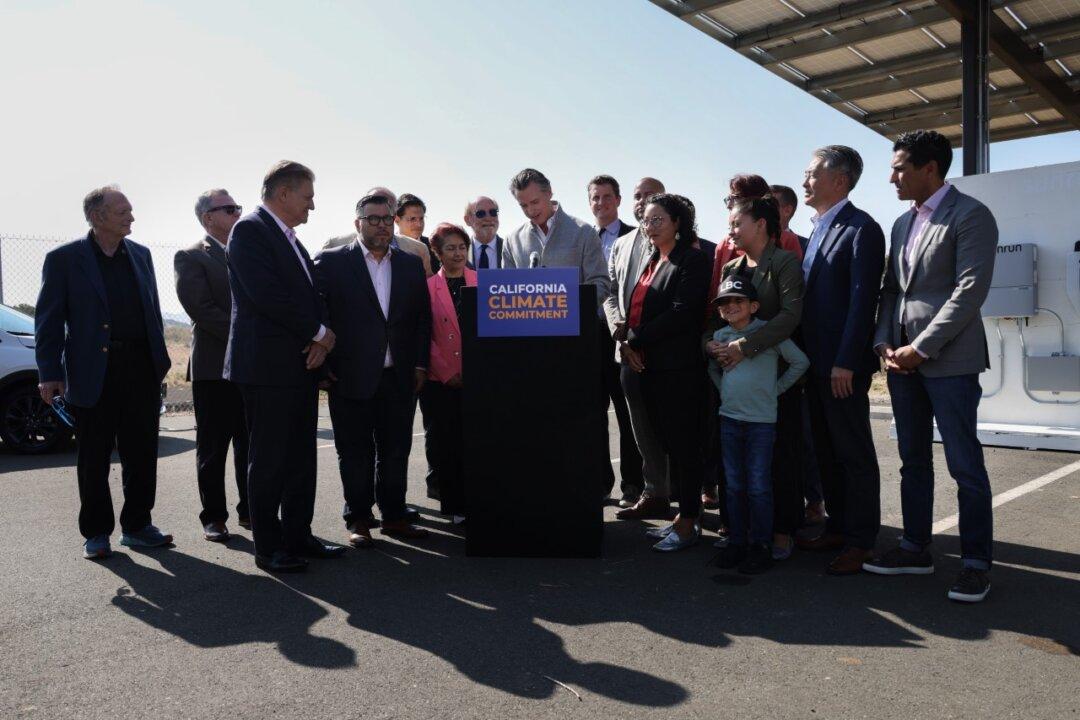California’s nearly $54 billion climate agenda will allow the state to “dominate” the green industry, Gov. Gavin Newsom said on Sept. 16 before signing several new pieces of legislation targeting climate change passed by the state Legislature.
The governor signed the measures in Vallejo, California, alongside several state legislators at the U.S. Department of Agriculture Forest Service Regional Office on Mare Island, a facility powered by green energy.





